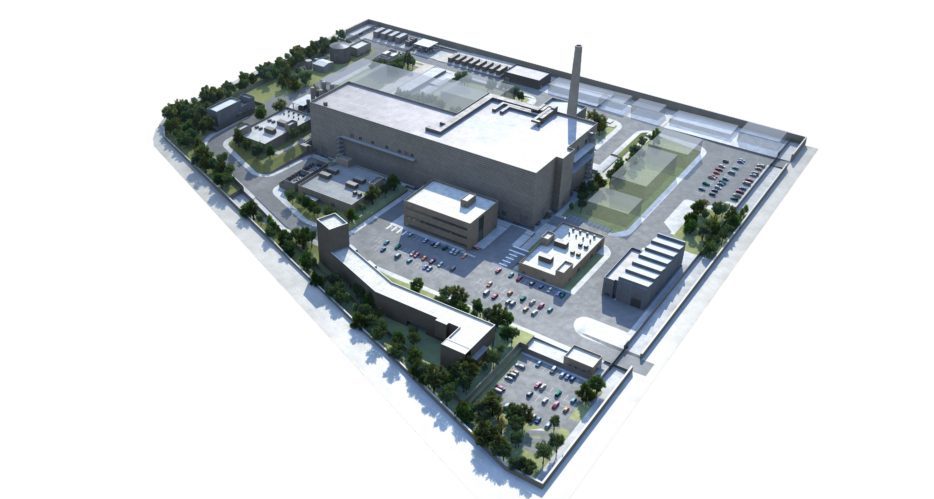
The International Fusion Materials Irradiation Facility – Demo Oriented NEutron Source (IFMIF-DONES) has officially started its construction phase in Granada, Spain. On 16 March, the official DONES Steering Committee met for its first meeting in Granada and to celebrate the formal start of construction.
IFMIF-DONES is a single-sited research infrastructure that aims to test and qualify materials for future fusion power plants. It is the only scientific infrastructure in the world to test materials for the demonstration fusion power plant DEMO. The facility is critical to developing and testing materials that can withstand the harsh conditions in a fusion reactor, in which energetic neutrons continuously bombard materials with energies in the range of 14 MeV. Those energies cannot easily be mimicked in fission-based experiments, leading to the dedicated materials facility IFMIF-DONES to reproduce the conditions inside future fusion devices.
IFMIF-DONES will feature a particle accelerator which will be the first source to create a total yield of fast neutrons similar to that in a fusion reactor. The accelerator will generate a deuteron beam (D+) of 125 mA current and 40 MeV energy that will hit a 25 mm liquid lithium curtain flowing at 15 m/s, producing a stream of high-energy neutrons that can simulate the damage produced by neutrons in a fusion reactor. Material samples will be irradiated with these neutrons in the test modules of the irradiation area to test their ability to withstand the harsh conditions expected in a fusion reactor.

The infrastructure is instrumental in maintaining and strengthening Europe’s leadership in fusion energy. The project is an international collaboration recognized as a critical European research infrastructure in 2018 by ESFRI, the European Strategy Forum on Research Infrastructures. IFMIF-DONES aims to be relevant in other areas of research and knowledge that will benefit from its technology, such as medicine, particle physics, fundamental physics studies, and industry.
Source: EUROfusion News
